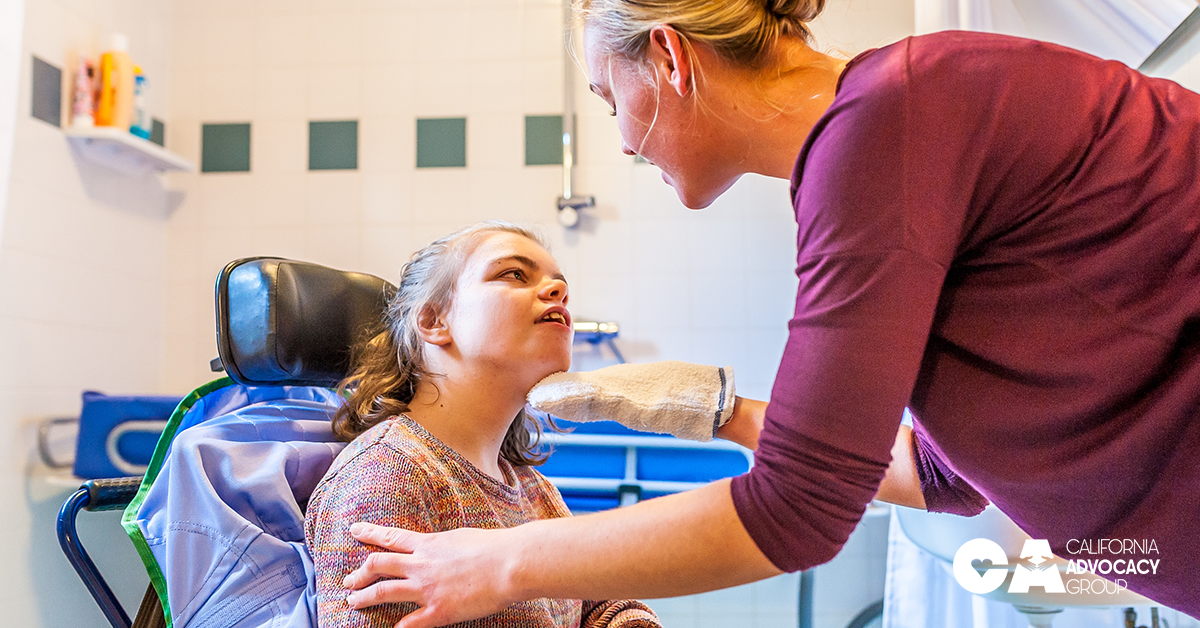In-Home Supportive Services, commonly referred to as IHSS, is a statewide program administered by each county under the direction of the California Department of Social Services. It provides the disabled, blind, those with limited income, or people over the age of 65 with in–home care services that are paramount to their ability to stay safely at home.
In this article we'll focus on "Protective Supervision," however, below is a list of some of the services children under the age of 18 are eligible to receive through IHSS:
Personal Care Services
Protective Supervision
Transportation Services
What are Protective Supervision Services?
In relation to caring for a minor, protective supervision consists of closely watching recipient behavior and intervening as appropriate to safeguard the child against injury, hazard, or accident. It's important to keep in mind that this program service is only available for observing the behavior of mentally impaired or mentally ill and nonself-directing, confused children.
The California Department of Social Services defines nonself-directing as "an inability, due to a mental impairment or mental illness, for individuals to assess danger and the risk of harm, and therefore, the individuals would most likely engage in potentially dangerous activities."
There's a lot of misinformation floating around the various online help groups and that can lead parents in the wrong direction. If you're looking to secure protective supervision for your child, it's important to note the following tasks or reasons are not allowable:
To guard against deliberate self-destructive behavior, such as suicide or any instance when an individual knowingly intends to hurt himself or herself
To prevent or control anti-social or aggressive behavior towards other people or objects
For casual visiting or other types of social activities
If the child's needs are caused by a medical condition
If the form of supervision required is medical
In anticipation of a medical emergency
HOW TO Request Protective Supervision
If you are starting from scratch, learn how to easily apply for IHSS by clicking here. If your child already receives IHSS, then his/her social worker will need to perform an in-home visit to reassess your child after they're informed of your request for protective supervision services.
You'll need to have the Assessment of Need of Protective Supervision form (SOC 821) appropriately filled out by a licensed medical professional. While not always requested, it's great practice to have the 24-Hours-A-Day Coverage Plan form (SOC 825) also filled out in detail. If possible, deliver these to social worker during home assessment to help expedite the process.
In addition to the above forms, it's advised that you provide any available information and documentation about the existence of your child's mental impairment or illness to the county social worker. Additionally, creating a detailed log to document your child’s accidents, injuries or near accidents/injuries during the time leading up to their assessment for Protective Supervision is another good way to educate the social worker on your child's specific needs.
⇲ Social Worker's Eligibility Checklist
These are areas the social worker should consider to determine whether Protective Supervision is an appropriate service for your child:
- Assess the minor for a mental impairment or mental illness, and request the parent/legal guardian obtain available information and documentation about the existence of a minor’s mental impairment/mental illness.
- Evaluate your child's functions of memory, orientation, and judgment, on an individualized basis.
- Assess a mentally impaired or mentally ill child for Protective Supervision regardless of age.
- Assess whether the minor needs more supervision because of his/her mental illness/mental impairment than a minor of the same age without such an illness/impairment; more supervision can mean more time, more intensity, or both.
- Evaluate the child even if the minor can be left home alone for a fixed period of time.
- Review any relevant information provided by the parent.
- The social worker will not presume that services, which are otherwise compensable, will be provided voluntarily by a parent or guardian or anyone else.
We hope this has given you a better understanding of protective supervision services within the IHSS program. If you still have questions, feel free to message us here at California Advocacy Group.













